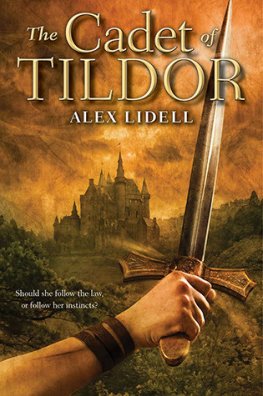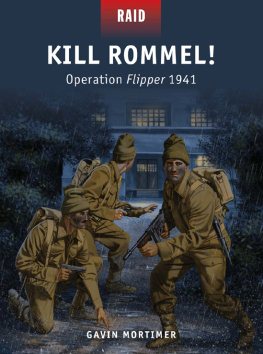CHAPTER I.
RETROSPECT.
Henry Ossian Flipper, the eldest of five brothers, and the subject of this narrative, was born in Thomasville, Thomas County, Georgia, on the 21st day of March, 1856. He and his mother were the property (?) of Rev. Reuben H. Lucky, a Methodist minister of that place. His father, Festus Flipper, by trade a shoemaker and carriage-trimmer, was owned by Ephraim G. Ponder, a successful and influential slave-dealer.
In 1859 Mr. Ponder, having retired from business, returned to Georgia from Virginia with a number of mechanics, all slaves,and among whom was the father of young Flipper. He established a number of manufactories in Atlanta, then a growing inland town of Georgia. He married about this time a beautiful, accomplished, and wealthy lady. "Flipper," as he was generally called,had married before this, and had been taken back alone to his native Virginia to serve an apprenticeship under a carriage-trimmer. This served, Mr. Ponder joined his wife in Thomasville, bringing with him, as stated, a number of mechanics.
All were soon ready for transportation to Atlanta except "Flipper." As he and his wife were each the property (?) of different persons, there was, under the circumstances, every probability of a separation. This, of course, would be to them most displeasing. Accordingly an application was made to Mr. Ponder to purchase the wife and son. This he was, he said, unable to do. He had, at an enormous expense, procured and fitted up a home, and his coffers were nearly, if not quite, empty. Husband and wife then appealed to Mr. Lucky. He, too, was averse to parting them, but could not, at the great price asked for him, purchase the husband. He was willing however, to sell the wife. An agreement was finally made by which the husband paid from his own pocket the purchase-money of his own wife and child, this sum to be returned to him by Mr. Ponder whenever convenient. The joy of the wife can be conceived. It can not be expressed.
In due time all arrived at Atlanta, where Mr. Ponder had purchased about twenty-five acres of land and had erected thereon, at great expense, a superb mansion for his own family, a number of substantial frame dwellings for his slaves, and three large buildings for manufacturing purposes.
Of sixty-five slaves nearly all of the men were mechanics. All of them except the necessary household servants, a gardener, and a coachman, were permitted to hire their own time. Mr. Ponder would have absolutely nothing to do with their business other than to protect them. So that if any one wanted any article of their manufacture they contracted with the workman and paid him his own price. These bond people were therefore virtually free. They acquired and accumulated wealth, lived happily, and needed but two other things to make them like other human beings, viz., absolute freedom and education. But
"God moves in a mysterious way
His wonders to perform."
And through that very mysteriousness this people was destined to attain to the higher enjoyment of life. The country, trembling under the agitation of the slave question, was steadily seeking a condition of equilibrium which could be stable only in the complete downfall of slavery. Unknown to them, yet existing, the great question of the day was gradually being solved; and in its solution was working out the salvation of an enslaved people. Well did that noblest of women, Mrs. Julia Ward Howe, sing a few years after:
"Mine eyes have seen the glory of the coming of the
Lord;
He is tramping out the vintage where the grapes of
wrath are stored;
He hath loosed the fateful lightning of his terrible
swift sword;
This truth is marching on.
"I have seen him in the watch-fires of a hundred circling camps; They have builded him an altar in the evening dews and damps; I can read his righteous sentence by the dim and flaring lamps; His day is marching on.
"I have read a fiery gospel, writ in burnished rows
of steel;
'As ye deal with my contemners, so with you my grace
shall deal;
Let the Hero, born of woman, crush the serpent with
his heel,
Since God is marching on.'
"He hath sounded forth the trumpet that shall never call retreat; He is sifting out the hearts of men before his judgment-seat; Oh! be swift my soul to answer him! be jubilant my feet! Our God is marching on.
"In the beauty of the lilies, Christ was born across
the sea,
With a glory in his bosom that transfigures you
and me;
As he died to make men holy, let us die to make men
free,
While God is marching on."
Another influence was as steadily tending to the same end. Its object was to educate, to elevate intellectually, and then to let the power thus acquired act.
The mistress of this fortunate household, far from discharging the duties and functions of her station, left them unnoticed, and devoted her whole attention to illegitimate pleasures. The outraged husband appointed a guardian and returned broken-hearted to the bosom of his own family, and devoted himself till death to agricultural pursuits.
The nature of the marriage contract prevented the selling of any of the property without the mutual consent of husband and wife. No such consent was ever asked for by either. No one was, therefore, in that state of affairs, afraid of being sold away from his or her relatives, although their mistress frequently threatened so to sell them. "I'll send you to Red River," was a common menace of hers, but perfectly harmless, for all knew, as well as she did, that it was impossible to carry it into execution.
In this condition of affairs the "servants" were even more contented than ever. They hired their time, as usual, and paid their wages to their mistress, whose only thought or care was to remember when it became due, and then to receive it.
The guardian, an influential stockholder in several railroads, and who resided in another city, made periodical visits to inspect and do whatever was necessary to a proper discharge of his duties.
Circumstances being highly favorable, one of the mechanics, who had acquired the rudiments of an education, applied to this dissolute mistress for permission to teach the children of her "servants." She readily consented, and, accordingly, a night- School was opened in the very woodshop in which he worked by day. Here young Flipper was initiated into the first of the three mysterious R's, viz., "reading 'riting and 'rithmetic." Here, in 1864, at eight years of age, his education began. And the first book he ever studiedI dare say ever sawwas a confederate reprint of Webster's "Blueback Speller." His then tutor has since graduated at Westminster College in Pennsylvania, and is, at the time of this writing, United States Consul at Malaga, Spain, having served in the same capacity for four years at Port Mahon, Spain.





